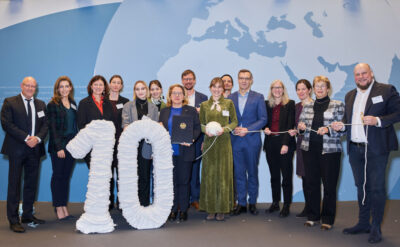A lot has happened in the textile sector in recent years: the new Act on Corporate Due Diligence Obligations in Supply Chains (LkSG) in Germany, various EU processes and an ever-increasing desire for greater sustainability and transparency. In order to respond effectively to these changes, the Textile Partnership restructured itself last year. The civil society members of the MSP now comment on the changes in the Partnership for Sustainable Textiles from their perspective in a review paper:
The civil society stakeholders show understanding for the fact that companies covered by the LkSG are no longer obliged to participate in the Textile Partnership`s review format reporting. At the same time, they see this review format as more comprehensive and demanding compared to the legal requirements.
The increased transparency that is to be achieved through the obligatory, public reporting of the companies’ suppliers is positively emphasized. In addition, it would have been desirable for the civil society stakeholders to also enable a direct assignment of companies and suppliers.
Civil society stakeholders regret that it has not yet been possible to define indicators for the four identified focus topics (living wages and purchasing practices, gender justice, circular economy and climate, grievance mechanisms and remediation) and fear a low level of ambition on the part of companies. The omission of other topics, such as forced labor and corruption, is also viewed critically. The innovation that companies now undertake to engage in projects on the focus topics in production countries is seen as an opportunity.
Overall, civil society stakeholders draw a mixed conclusion on the restructuring of the Textile Partnership. On the one hand, the increasing transparency is emphasized positively. On the other hand, they criticize the fact that there are too few opportunities to measure their own progress. It is emphasized that the future of the Partnership is also crucially dependent on the political will of the German government and that it needs the cooperation of all MSP members.
You can read the full paper here.



